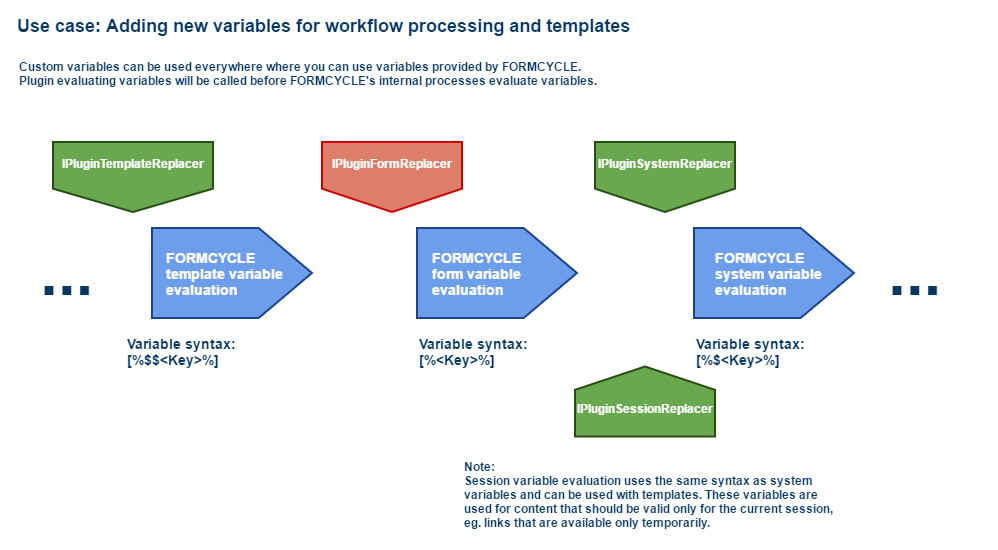Placeholder substitution (form)
Content
[
Hide
]
IPluginFormReplacer
Uses
An implementation of the interface IPluginFormReplacer allows to integrate own replacement logic for the placeholder replacement process of form elements.
The custom implementations are performed before the internal placeholder replacement process of Xima® Formcycle.
This also makes it possible, for example, to replace system-internal form placeholders with a custom implementation.
When the placeholder replacement is executed, the following pattern is searched for and the placeholder is replaced by the corresponding form value:
[%<own placeholder identifier or name of a form field>%]
Method signatures
The plugin interface IPuginFormReplacer references all methods provided by the base interface IFCPlugin.
and additionally the following plugin-specific method signatures:
IPluginFormReplacerRetVal replace(IPluginFormReplacerParams params) throws FCPluginException
Transfer value.
The IPluginFormReplacerParams type provides access to the following properties:
- getPlaceholder() complete string of the placeholder (this includes the markup of the placeholder).
- getPlaceholderContent() content of the placeholder (without type-specific markup)
- getFormversion() the current form version
- getFormDataAdapter() the form data adapter, as interface to the concrete form data as well as their description
- isEncodeForHTML() flag which determines whether the return is to be coded in HTML conformity
- getEntityContext() current user context, for example to be able to perform database operations

